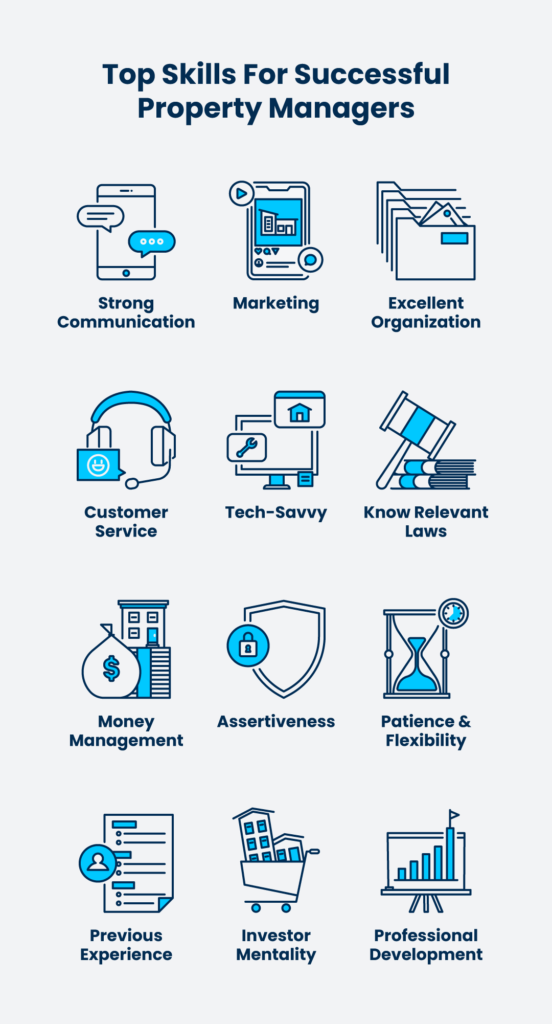To become successful in the field of property facilities management, you have to learn certain skills and qualities that are usually found in good managers. In this guide, I will explain the important skill areas which both property and facility managers need to develop.
Top 6 Skills That Needs To Be Developed By Facility Manager
1. Basic building knowledge
Doesn’t matter if you are a facility or property manager, the main thing that needs to be kept in mind is learning the useful information related to managing that area and locality. You have to know how the things in that area work and what tasks should be done by you in order to maintain them.
Learn about the timing in which certain products, such as AC system, needs to be replaced. Find out about the person that should you contact for regular checking. More importantly, you should know how to get quality work within a budget.
2. Contract negotiation
Both facility and property manager need to get a contract for buying goods and services. Hence, they are taking huge responsibility and should be ethical while negotiating.
Negotiation for products is important and shows their decision-making abilities. In some way, both the managers are protecting the money of the building’s owner by taking responsibility and handling it.
3. Become a quick learner and flexible
There might be several issues related to houses and properties. Hence, the facility and property managers need to actively observe about the current situation and take quick action, when required.
4. Ability to work with other people
In various buildings, people arrange get-togethers and parties. A good facility and property manager can come across several people who need their opinion or permission to work in that area.
5. Knowledge of basic accounting and finance
Preparing a budget is extremely important for the managers as it helps them keep track of everything. As the facility manager, you need to prepare it for the department. Only by making a budget, you can understand whether making an investment in the infrastructure will be ideal or should be postponed.
6. Leadership and strategy
You might be managing a huge property or facility and there might be a need to hire a team in the future. Hence, you should be comfortable arranging meetings and dividing tasks based on their experience.
10 Essential Skills Every Property Manager Should Master
- Communication:
Building solid relationships with tenants, property owners, contractors, and colleagues requires effective communication. Property managers should be skilled in clear and concise communication, active listening, and conveying information professionally and empathetically.
2. Organization:
Property managers juggle multiple responsibilities simultaneously, making organizational skills vital. From managing maintenance requests to keeping track of lease agreements and financial records, staying organized ensures that nothing falls through the cracks.
3. Financial Management:
A fundamental aspect of property management is financial management. Property managers should possess knowledge of budgeting, rent collection, expense tracking, and financial reporting. A solid understanding of financial concepts and tools will help make informed decisions and maximize profitability.
4. Customer Service:
Providing exceptional customer service is key to tenant satisfaction and retention. Property managers should have strong interpersonal skills, be responsive to tenant inquiries and concerns, and strive to create a positive living or working environment for tenants.
5. Problem-Solving:
Property management often presents unique challenges that require effective problem-solving skills. Property managers should proactively identify and resolve issues promptly, find creative solutions, and mitigate potential conflicts between tenants or property owners.
6. Marketing and Advertising:
Attracting and retaining tenants is essential for maintaining a profitable property. Property managers should possess marketing and advertising skills to effectively promote vacancies, create compelling property listings, utilize online platforms, and implement strategies to reach the target audience.
7. Legal Knowledge:
Property managers must be knowledgeable about the laws and regulations that govern property management at the local, state, and federal levels. Understanding fair housing legislation, tenant rights, lease agreements, eviction processes, and building code compliance are all part of this. It is critical to stay current on legal standards in order to protect the interests of both property owners and tenants.
8. Time Management:
Property managers handle numerous tasks and deadlines, requiring strong time management skills. Prioritizing responsibilities, setting realistic timelines, and efficiently managing their time will ensure that all aspects of property management are handled effectively and efficiently.
9. Negotiation:
Negotiation skills are vital for property managers when dealing with vendors, contractors, and property owners. Effective negotiation can lead to favorable contracts, cost savings, and improved services for the property.
10. Adaptability and Continuous Learning:
The property management environment is changing, and property managers need to be adaptable and receptive to continual learning.
Staying current on industry trends, new innovations, and standard procedures will assist property managers adapt to shifting market demands.
Mastering these 10 essential skills will empower property managers to excel in their roles.
From effective communication and organization to financial management and problem-solving, these skills lay the foundation for successful property management. By continuously developing and honing these skills, property managers can deliver exceptional results and provide a seamless experience for both property owners and tenants.
Conclusion
We hope now you understand the skills that both facility and property managers need to develop with time.



























0 Comments